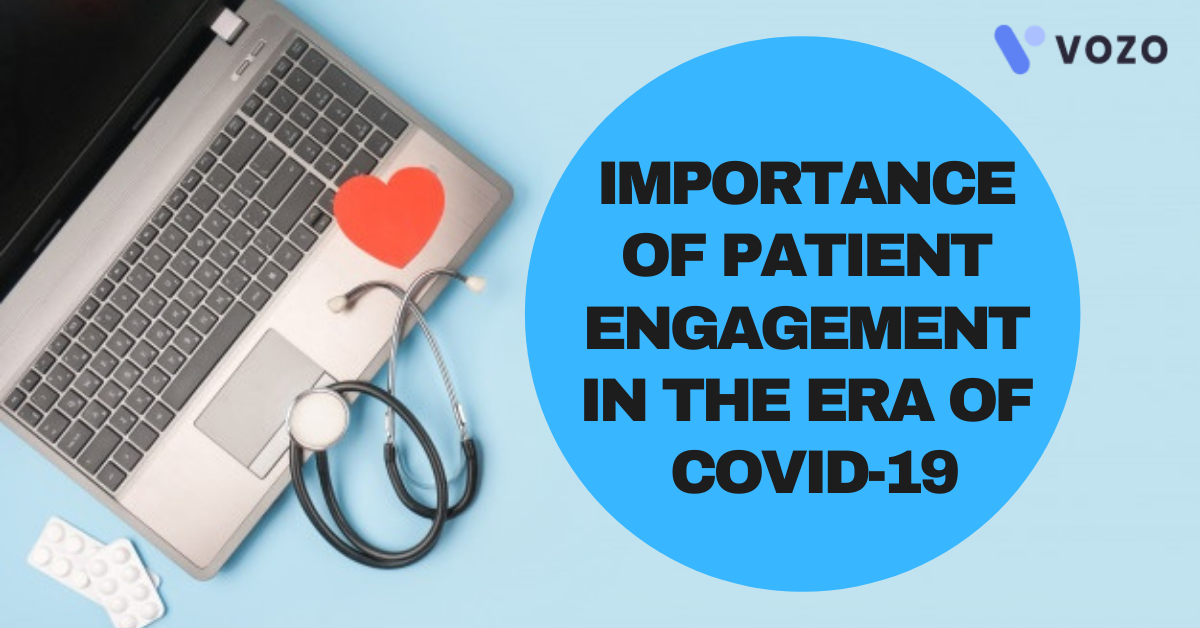Importance Of Patient Engagement In The Era Of COVID-19
Over the past year, the healthcare world has undergone an unbelievable change as the result of COVID-19. Both Patients and physicians started adopting advanced innovative tools like telemedicine and remote patient monitoring.
While the use of technology in healthcare in the form of software and mobile applications was already growing in the healthcare sector, the pandemic has fast-tracked these changes and now we’re seeing the future of healthcare a decade early. Here are the ways the view of patient engagement has changed as a result of COVID-19 and advanced healthcare technologies.
Telehealth: Provides Safe And Secure Healthcare Remotely
In just a short period, telemedicine has gone from a modern medical care trendy form to a typical type of specialist visit. Pre-pandemic, only 8% of patients had at any point had a virtual regular checkup, despite the way that 66% of consumers said they’d attempt it. Quick forward to the present time and the extricating of telehealth guidelines and changes to repayment rates have brought about a 57% increment in utilization, with about 20% of all clinical visits expected to be led through telemedicine in 2020.
The pandemic has helped illuminate the many benefits of virtual visits, from safer, socially distant appointments for potentially contagious patients to improved convenience. Instead of traveling for an appointment and waiting to be seen by a physician, patients can conduct an initial visit via telemedicine, then determine if an in-person visit is warranted. The format is especially beneficial for things like follow-up appointments and medication check-ins, or remote patients, or those with limited mobility.
RELATED: How Big Data Driven Telemedicine Is Reshaping 2021 Healthcare?
Overall, virtual patient visits hold the guarantee of improving healthcare access while at the same time opening correspondence channels and reinforcing the specialist persistent relationship. Patients tend to agree that telemedicine can help them assume a more dynamic part in their prosperity, with 91% of consumers expressing in a new study that it would help them stick to appointments, manage prescriptions and refills, and follow wellness regimens as directed by their doctor.
Patient Portals: For Easy Appointment Booking
The transition to virtual visits has positively affected patient portals too. While about 90% of practices offer a patient portal, pre-pandemic, less than 10% of patients detailed utilizing one. In any case, the covering of training front entryways brought about an opening of patient entries on the web, as doctors went to advanced stages to convey and deal with the soundness of their patients.
The capacity to safely send direct messages, reorder remedies, book appointments, and access telemedicine visits are empowering use from patients and healthcare providers the same. Care management tools have additionally assumed a part in the scattering of Covid-19 test outcomes, further advancing their utilization.
RELATED: Role Of Patient Portal In COVID-19 Vaccine Efforts
Automatic Appointment Reminders
For quite a long time, it’s been standard practice for front office staff to get the telephone and consider many patients consistently to help them to remember their upcoming scheduled appointments. Not exclusively is this tedious, yet it makes one wonder: what number of individuals today routinely get the telephone for an obscure number or check their phone messages?
Numerous doctors are presently sending automatic appointment reminders and updates in the patient’s preferred way: text, call, email, or a mix of configurations. While it can accept various calls and voice messages before a patient reacts to affirm an appointment, instant messages and messages are ordinarily reacted to inside the space of hours, if not minutes, and result in fewer missed appointments.
As an additional advantage, on account of a startling scratch-off because of climate or a doctor becoming sick, automated reminders can be conveyed to many patients right away which helps in reducing no-show rates and improves patient engagement.
Summary
As patients are actively involving in their health after realizing the impact created by COVID-19 in the healthcare sector, developing advanced technological health software is the secret key to drive better patient engagement. The healthcare practices that focus more on the importance of patient engagement and invest in advanced technological software are likely able to see the positive impact and better outcomes.
Starting from telehealth visits to patient portal usage, the pandemic has taken the future of healthcare one step ahead. It also improved the patient’s expectations on the need for easy healthcare access anytime and anywhere. Understanding your patient’s needs will easily allow you to identify and optimize opportunities to increase performance will ultimately improve patient engagement. So it is true that the technology adoption will promote better patient engagement and ensure the growth of practice productivity.
About the author

With more than 4 years of experience in the dynamic healthcare technology landscape, Sid specializes in crafting compelling content on topics including EHR/EMR, patient portals, healthcare automation, remote patient monitoring, and health information exchange.
His expertise lies in translating cutting-edge innovations and intricate topics into engaging narratives that resonate with diverse audiences.














